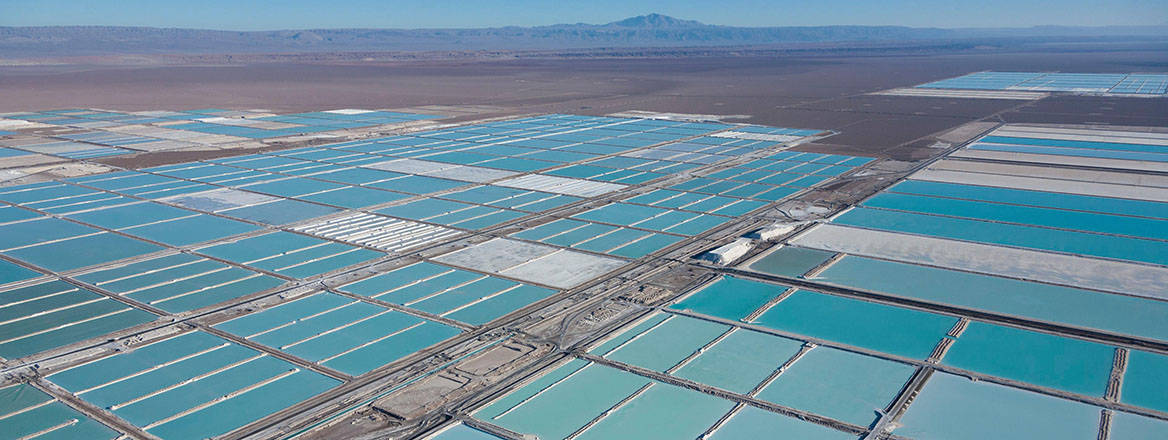Critical Minerals in the Energy Transition: Environmental and Human Security Risks
This paper explores the environmental and human security risks associated with critical mineral extraction, how rising demand for critical minerals in the context of the net zero transition will impact these risks, and what options exist for the UK to address these risks.
Critical minerals are broadly defined as minerals that are of vital importance for technology, the economy and national security and are also subject to serious risks relating to the security of their supply. This paper uses the term ‘critical minerals’ broadly, focusing on minerals considered to be of high criticality to the UK in particular. It recognises that this is not a fixed list, and that a country’s specific assessment will affect whether a mineral is considered critical.
A dramatically increased supply of these minerals will be vital for the net zero transition – both in the UK and internationally – and to meet the target to limit global temperature rise to 1.5°C above pre-industrial levels, set at the UN Framework Convention on Climate Change (UNFCCC) Paris Conference in 2015.
Yet the extraction of critical minerals poses various environmental and human security risks, many of which pose a threat to the net zero transition, in the UK and globally. This paper explores the environmental and human security risks associated with critical mineral extraction, how rising demand for critical minerals in the context of the net zero transition will impact these risks, and what options exist for the UK to address these risks. It identifies key environmental risks as including the potential for critical mineral extraction to contribute to deforestation, pollution, soil degradation, water scarcity and biodiversity loss. In relation to human security, key risks identified include the potential for critical mineral extraction to contribute to human rights abuses, labour exploitation, crime, conflict and corruption. Where mining takes place on or near Indigenous lands, both environmental and human security risks are found to disproportionately affect already-disenfranchised communities.
While a number of these risks are well established, there is a potential for burgeoning demand for critical minerals to accelerate potential harms. Such harms can occur in situations where rising demand pushes governments to remove or overlook relevant regulations; where new extractive operations open up in countries without mining histories, which lack the infrastructure or capacity to manage the associated risks; where harmful boom–bust cycles of extractive activity occur due to ongoing technological advances; and where a race to secure supplies of critical minerals exacerbates competition and geopolitical tensions.
If the mining sector fails to address these risks as demand booms, public opinion across source and supply countries might turn against the net zero transition as the harms are perceived to outweigh the benefits. It is crucial that the UK leverages its unique position as an international trade, financial and mining hub to help the international community mitigate the risks posed in this regard.
Based on the findings of this research, the authors suggest the following ways forward for consideration by the UK government, many of which are also applicable to other governments in the Global North:
- Use its role as a mining and financial hub to improve regulation, standards and transparency in relation to investment in critical minerals based on key environmental priorities, for example, through the application of the Taskforce on Nature-Related Financial Disclosures, Science-Based Targets for Nature, Global Reporting Initiative and other similar initiatives, thereby supporting integration of high-quality targeted frameworks into this burgeoning sub-sector. This will reward and enhance uptake of best practice by businesses and support regulation in producer countries globally.
- Develop an updated industrial strategy on critical mineral use specifically, to support the strategic acquisition and use of critical minerals and facilitate prioritisation across key industries should a shortage of critical minerals occur. This should be used alongside the UK’s Critical Minerals Strategy to ensure that critical minerals are used strategically, particularly in the face of fluctuations in supply.
- Given the criticality of the net zero transition and the minerals it requires, review domestic policies to maximise recovery of critical minerals that are already in consumer supply chains, in the form of waste. This would broaden opportunities for critical mineral sourcing aside from extraction via new mines. This should include prioritising the upscaling of the UK’s recycling capacity to facilitate the reuse of critical minerals, mindful of the fact that while recycling alone cannot meet demand for critical minerals, estimates suggest that recycling could meet 10% of global demand, while bringing jobs to the UK in support of the ‘levelling up’ agenda.
- Work with manufacturers on extended producer responsibility, right to repair and design-to-recycle best practice to move towards a circular economy and ensure that critical minerals are reused and recycled wherever possible, thereby reducing demand. This will help to reduce wastage of critical minerals and decrease pressure on supply chains.
- Support improved consumer requirements for standards around the production of critical minerals. An example of this can be seen in the case of the 2023 EU Regulation on Deforestation-Free Products, which could be adapted for the critical mineral sector in the UK and more widely across the Global North.
- Support governments in source countries to develop the infrastructure and capability to manage mining-related risks. This could involve providing development assistance to build capacity to apply regulation and best practice, while supporting initiatives that mainstream biodiversity, conservation and social justice into regulation. Such regulation should improve the development and practice of the mining sector in producer countries, in collaboration with other actors working in this area, such as relevant aid agencies and multilateral development banks.
- Consider how to integrate innovative concepts and proposals that call for a paradigm shift in our approach to economic activity, human wellbeing and the natural world. This can be achieved through an approach which prioritises the pursuit of human and ecological wellbeing over material growth, and has the potential to help us better assess, understand and mitigate the environmental and social harms associated with the mining sector and other sectors dependent on natural resources.
WRITTEN BY
Genevieve Kotarska
RUSI Associate Fellow, OCP | SHOC Network Member - Researcher
Lauren Young
Former Research Fellow
- Jim McLeanMedia Relations Manager+44 (0)7917 373 069JimMc@rusi.org



